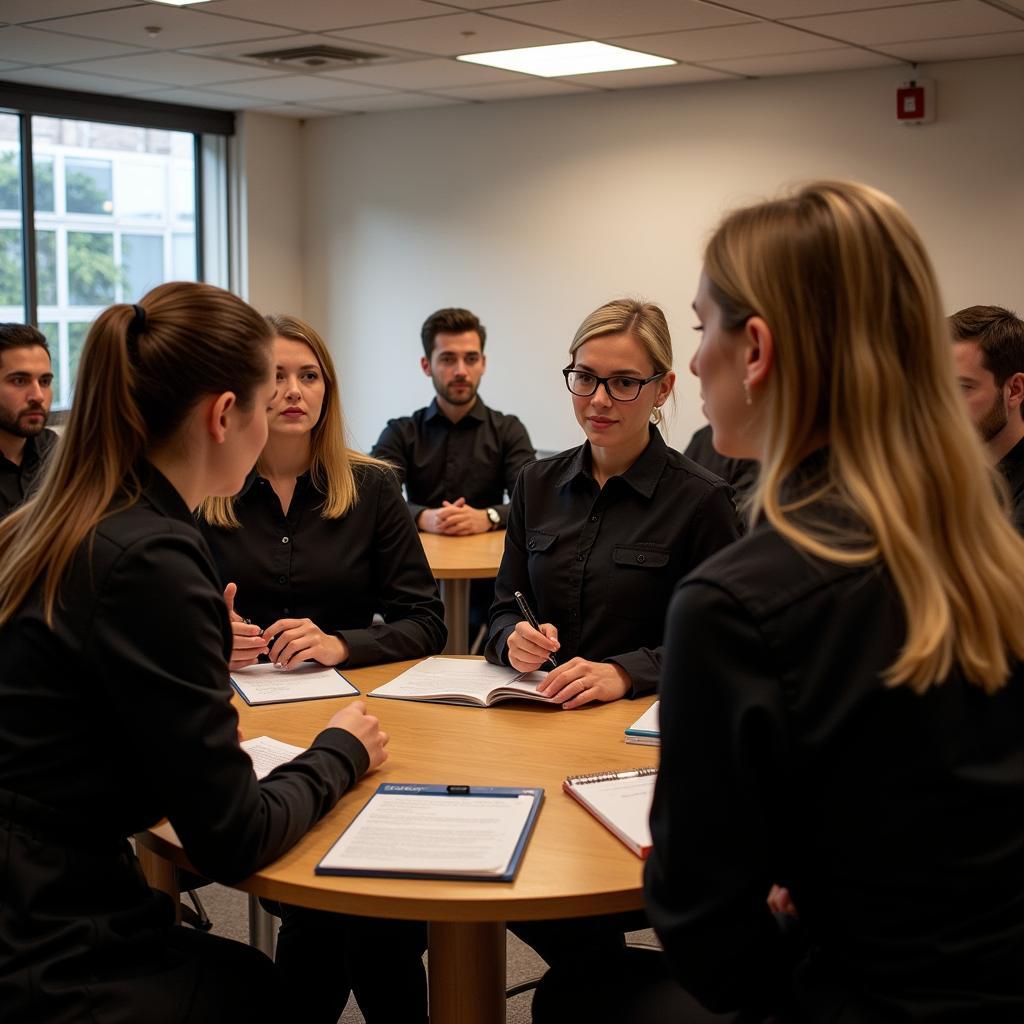In the competitive landscape of the hospitality industry, delivering exceptional guest experiences is paramount to success. This is where a Hospitality Trainer plays a crucial role. They are the driving force behind equipping staff with the skills and knowledge necessary to create memorable and positive interactions for every guest. But what exactly does a hospitality trainer do, and how can they benefit your establishment? Let’s delve into the world of hospitality training and explore its transformative impact.
Shaping Excellence: The Core Functions of a Hospitality Trainer
A hospitality trainer is much more than just an instructor; they are architects of exceptional guest service. Their responsibilities are multifaceted and encompass various aspects of staff development:
- Curriculum Development: They design and develop comprehensive training programs tailored to the specific needs of the establishment, covering areas such as guest relations, communication skills, service standards, and complaint resolution.
- Training Delivery: They facilitate engaging and interactive training sessions, employing diverse methods like role-playing, case studies, and group discussions to enhance learning.
- Performance Evaluation: They assess the effectiveness of training programs through ongoing evaluation and feedback, identifying areas for improvement and ensuring training aligns with business objectives.
- Trend Awareness: They stay abreast of the latest industry trends, incorporating innovative training techniques and technologies to keep the workforce ahead of the curve.
The Ripple Effect: Benefits of Investing in Hospitality Training
The advantages of having a dedicated hospitality trainer extend far beyond improved guest satisfaction, creating a positive impact on various facets of your business:
- Elevated Guest Experiences: Well-trained staff are better equipped to anticipate and fulfill guest needs, resulting in increased satisfaction, positive reviews, and valuable word-of-mouth referrals.
- Enhanced Brand Reputation: Consistent delivery of exceptional service builds a strong brand reputation, attracting new customers and fostering loyalty among existing ones.
- Increased Revenue Generation: Exceptional service translates to increased customer spending, repeat business, and a healthier bottom line.
- Reduced Employee Turnover: Investing in employee development through training increases job satisfaction and fosters a positive work environment, leading to lower turnover rates and reduced recruitment costs.
 Hospitality trainer leading a workshop
Hospitality trainer leading a workshop
Key Skills of a Successful Hospitality Trainer
Effective hospitality trainers possess a unique blend of hard and soft skills that enable them to excel in their roles:
- Exceptional Communication: They can clearly articulate training objectives, provide constructive feedback, and engage trainees effectively.
- Deep Industry Knowledge: A strong understanding of hospitality operations, industry standards, and best practices is essential.
- Passion for Service Excellence: They possess a genuine enthusiasm for delivering outstanding guest experiences and inspire the same passion in others.
- Adaptability and Creativity: The ability to adapt training methods to different learning styles and incorporate innovative techniques is crucial.
Hospitality Training: A Wise Investment
In the ever-evolving world of hospitality, investing in a dedicated hospitality trainer is not just an option but a strategic necessity. They are the catalyst for cultivating a culture of service excellence that permeates every aspect of your establishment, from front-of-house interactions to back-of-house operations. By equipping your staff with the skills and knowledge to consistently exceed guest expectations, you pave the way for sustainable growth, enhanced profitability, and a reputation for delivering unforgettable hospitality experiences.
FAQs about Hospitality Training
1. What types of training programs do hospitality trainers typically offer?
Hospitality trainers offer a wide range of programs, including customer service, communication skills, conflict resolution, food safety, and more. These programs can be customized to meet the specific needs of the establishment.
2. How often should hospitality training be conducted?
Ongoing training is essential to maintain service standards and keep employees engaged. The frequency of training will depend on the size of the establishment, the complexity of the job roles, and the rate of employee turnover.
3. What are some effective methods for evaluating the effectiveness of hospitality training?
Evaluating training effectiveness can involve observing employee performance, gathering guest feedback, and analyzing key performance indicators (KPIs) such as customer satisfaction scores and revenue growth.
4. Can hospitality training be conducted online?
Yes, online training platforms offer a convenient and cost-effective way to deliver training content. However, it’s important to incorporate interactive elements and opportunities for practice to maximize engagement and knowledge retention.
 Hospitality Staff Receiving Training
Hospitality Staff Receiving Training
5. How can I find qualified hospitality trainers in my area?
You can find reputable hospitality trainers through industry associations, online directories, or by seeking recommendations from other businesses in the hospitality sector.
Ready to Elevate Your Hospitality?
For more insights on enhancing your guest experiences, explore our resources on goodwill hospitality training and aintree races hospitality.
Contact us today at 02437655121, email us at [email protected] or visit us at Số 298 Đ. Cầu Diễn, Minh Khai, Bắc Từ Liêm, Hà Nội, Việt Nam. Our dedicated team is available 24/7 to assist you.